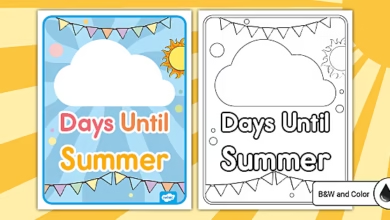The 72 Sold Lawsuit: Everything You Need to Know About the Legal Battle

Introduction
72 Sold Lawsuit has made waves in the real estate industry with its innovative approach to selling homes. Promising a streamlined process and faster sales compared to traditional methods, the company quickly gained popularity among homeowners and agents alike. However, recent developments have cast a shadow over its reputation as a legal battle unfolds, bringing the company under scrutiny.
The 72 Sold lawsuit has raised questions about the legitimacy of its practices and the potential ramifications for its stakeholders. Understanding the details of this case is crucial, not just for those directly involved but also for anyone interested in the broader implications for the real estate sector. In this article, we will break down the lawsuit, its impact, and what it could mean for the future of real estate transactions.
Background of 72 Sold
2.1. What is 72 Sold?
72 Sold is a real estate company known for its unique selling model that claims to sell homes in as little as 72 hours. By focusing on speed and convenience, the company has positioned itself as a disruptor in a market often bogged down by lengthy processes.72 Sold Lawsuit Its model emphasizes professional marketing, strategic pricing, and quick closing times, making it an attractive option for homeowners seeking efficiency.
Unlike traditional methods that rely heavily on open houses and prolonged negotiations, 72 Sold offers a streamlined process that aims to minimize hassle. 72 Sold Lawsuit This innovative approach has appealed to a broad audience, particularly those looking to avoid the complexities of traditional real estate transactions.
2.2. Success and Market Impact
The success of 72 Sold has been marked by rapid growth and widespread recognition. Its unique model has not only attracted clients but also reshaped expectations within the industry. 72 Sold LawsuitThe company’s marketing campaigns and promises of quick sales have drawn significant attention, establishing it as a key player in real estate innovation.
However, this rapid rise has also led to increased scrutiny. 72 Sold Lawsuit Competitors, industry professionals, and now legal challenges are questioning whether the company’s practices align with regulatory standards. This backdrop sets the stage for the current lawsuit, which could significantly impact its trajectory.
The Lawsuit Explained
3.1. Overview of the Allegations
The lawsuit against 72 Sold centers on allegations of misleading practices and potential violations of real estate laws. 72 Sold Lawsuit Plaintiffs claim that the company’s marketing strategies may have exaggerated its capabilities, leading to unrealistic expectations among clients. Additionally, concerns about transparency in pricing and contractual obligations have surfaced, further complicating the case.
The legal action involves multiple parties, including homeowners who feel misled, competing real estate agents, and regulatory authorities. 72 Sold Lawsuit These allegations paint a complex picture of a company navigating the fine line between innovation and compliance.
3.2. Legal Timeline
The timeline of the lawsuit reveals a gradual escalation of concerns. 72 Sold Lawsuit Complaints from clients and competitors reportedly began as informal grievances before gaining traction and leading to formal legal action. Key dates include the filing of the lawsuit, subsequent hearings, and the responses from 72 Sold.
As the case progresses, new developments continue to emerge, capturing the attention of both industry insiders and the public. Each update adds layers to the narrative, emphasizing the significance of the legal proceedings. 72 Sold Lawsuit
3.3. Potential Legal Violations
At the heart of the case are allegations that 72 Sold may have violated laws related to consumer protection, false advertising, and real estate transactions. 72 Sold Lawsuit Legal experts are examining whether the company’s claims about quick sales and financial benefits were adequately supported by evidence.
The outcome of the lawsuit will hinge on proving whether these practices crossed legal boundaries. This aspect of the case highlights the challenges faced by innovative companies operating in highly regulated industries. 72 Sold Lawsuit
Impact of the Lawsuit
4.1. On 72 Sold’s Reputation
The lawsuit has undeniably impacted 72 Sold’s reputation. What was once seen as a groundbreaking company is now facing skepticism from clients and industry peers. 72 Sold Lawsuit The legal battle has led to increased scrutiny of its business practices, raising concerns about trustworthiness and reliability.
For a company that relies heavily on its public image, this reputational damage could have long-lasting effects. Restoring confidence among stakeholders will require transparent communication and a commitment to addressing the allegations.72 Sold Lawsuit
4.2. On Homeowners and Agents
Homeowners currently working with 72 Sold are understandably concerned about how the lawsuit might affect their transactions. Questions about contract validity, pricing transparency, and legal accountability are top of mind 72 Sold Lawsuit. Similarly, real estate agents affiliated with the company face uncertainty about their professional standing and future opportunities.
These concerns highlight the ripple effects of legal challenges on individual stakeholders, emphasizing the need for clear guidance and support from the company.
4.3. On the Real Estate Industry
The lawsuit against 72 Sold has broader implications for the real estate industry. 72 Sold Lawsuit As one of the few companies challenging traditional methods, the outcome of this case could set a precedent for how innovative models are regulated. Competitors and regulators alike are closely watching the proceedings, understanding that the verdict could influence future industry practices.
Legal Perspectives and Future Implications
5.1. Possible Outcomes of the Case
The lawsuit could result in several outcomes, ranging from dismissal of the claims to significant penalties or operational changes for 72 Sold. A settlement is another possibility, potentially allowing the company to avoid prolonged litigation while addressing key concerns. 72 Sold Lawsuit
Regardless of the outcome, the case underscores the importance of balancing innovation with regulatory compliance. 72 Sold Lawsuit Companies operating in the real estate sector must navigate these complexities to maintain credibility and success.
5.2. Lessons for Real Estate Professionals
For real estate professionals, the lawsuit serves as a cautionary tale. It highlights the need for transparency, ethical practices, and adherence to legal standards. 72 Sold Lawsuit Agents and companies can learn valuable lessons about the risks of overpromising and the importance of managing client expectations.
By prioritizing these principles, industry players can foster trust and avoid similar legal pitfalls.
Conclusion
The 72 Sold lawsuit is more than just a legal battle; it’s a pivotal moment for the company and the real estate industry. As the case unfolds, it will reveal critical insights into the challenges of balancing innovation with accountability. For stakeholders, staying informed and proactive is essential to navigating this complex landscape.



